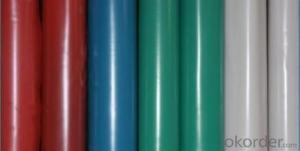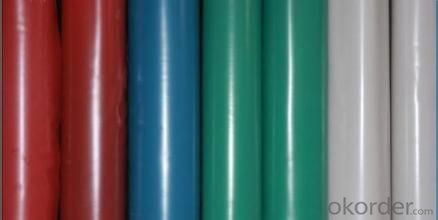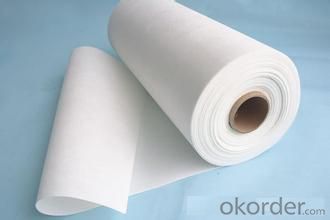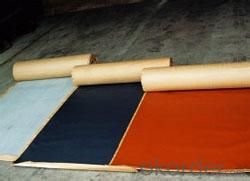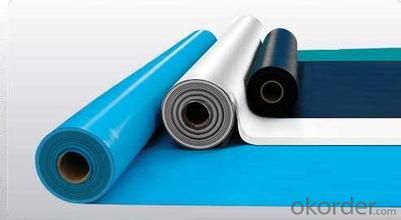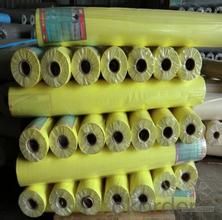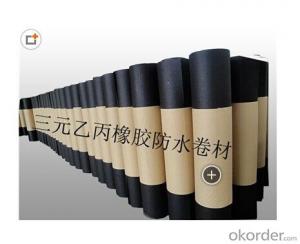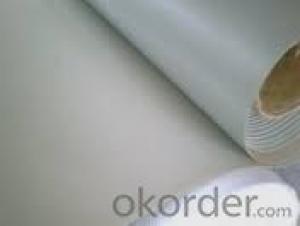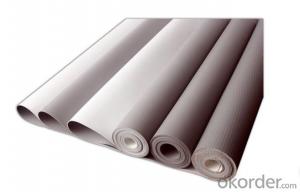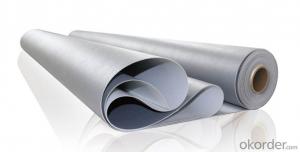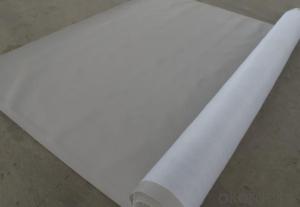PVC Waterproof Membrance for Roofing and Underground
- Loading Port:
- Tianjin
- Payment Terms:
- TT or LC
- Min Order Qty:
- 10000 m²
- Supply Capability:
- 15000000 m²/month
OKorder Service Pledge
OKorder Financial Service
You Might Also Like
Quick Details
Type: | Waterproof Membrane | Place of Origin: | Shandong, China (Mainland) | Brand Name: | CMAX |
Model Number: | Excaid-D | thickness:1.2mm,1.5mm,2.0mm: | Raw mateiral:EPDM rubber | width:1200mm: | Standard:GB18173.1--2006 |
length:20m: | Tear strength:>=25KN/m | break tensile strength >=7.5MPa: | waterproof:0.3MPa,30min | break elongation:>=450%: | usage:building waterproof |
Packaging & Delivery
Packaging Details: | PE membrane and pallet |
Delivery Detail: | within 20 days after receiving downpayment |
Specifications
1.ISO9001,ISO14001
2.Top 3 of Chinese waterproof materials manufacturer
3.Customize product property
4.System accessories
Technical Data:
Tensile Strength N/CM | Normal temperature: ≥60 ; 60°C: ≥30 |
Breaking Elongation % | Normal temperature:≥400 ; -20°C: ≥10 |
Tear Resistance N | ≥20 |
Impermeability, 30 min no leakage | 0.3Mpa |
Low Temperature Bending °C | ≥ -20 |
Heating Shrinking mm | Extension: ≥2 Shrink:≥4 |
Heat Resistance (80°C×168h) | Tensile Strength % : ≥80 ; Keeping rate of adhesive breaking:≥70 |
Alkali resistance (10% ca (oh)2 solution,normal temperature ×168h)) | Tensile Strength % : ≥80 ; Keeping rate of adhesive breaking:≥80 |
Synthetic aging | Tensile Strength % : ≥80 ; Keeping rate of adhesive breaking:≥80
|
FAQ
1.Can you offer free sample ?
Yes , we can offer free sample .
2.What's payment ?
TT or LC both ok .
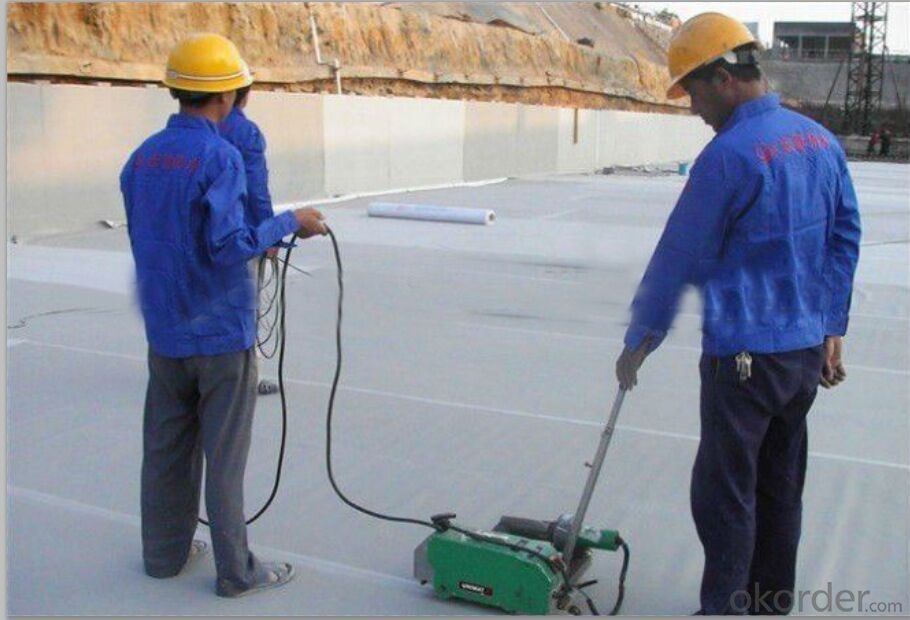
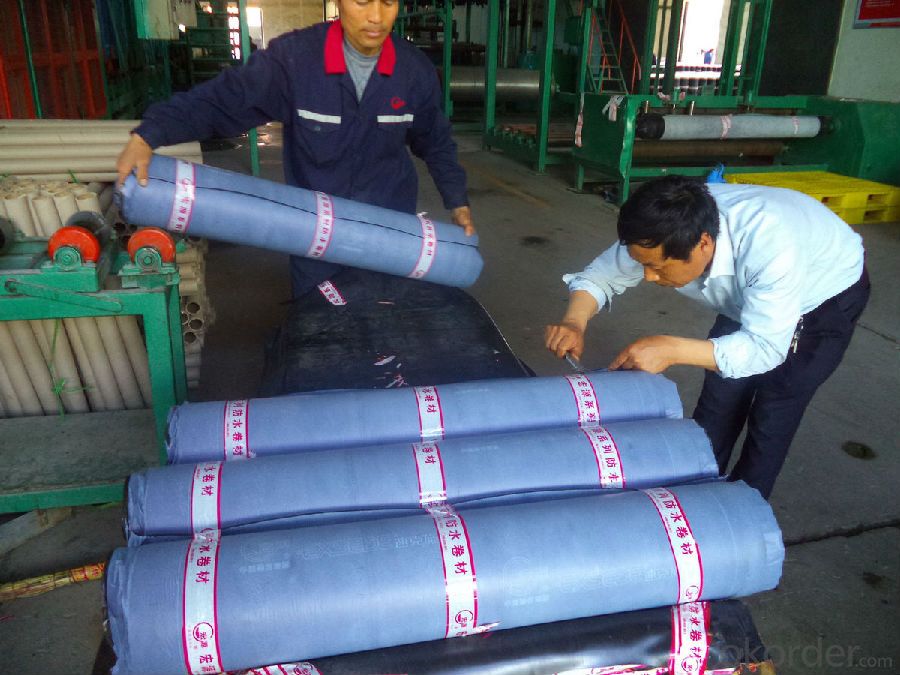
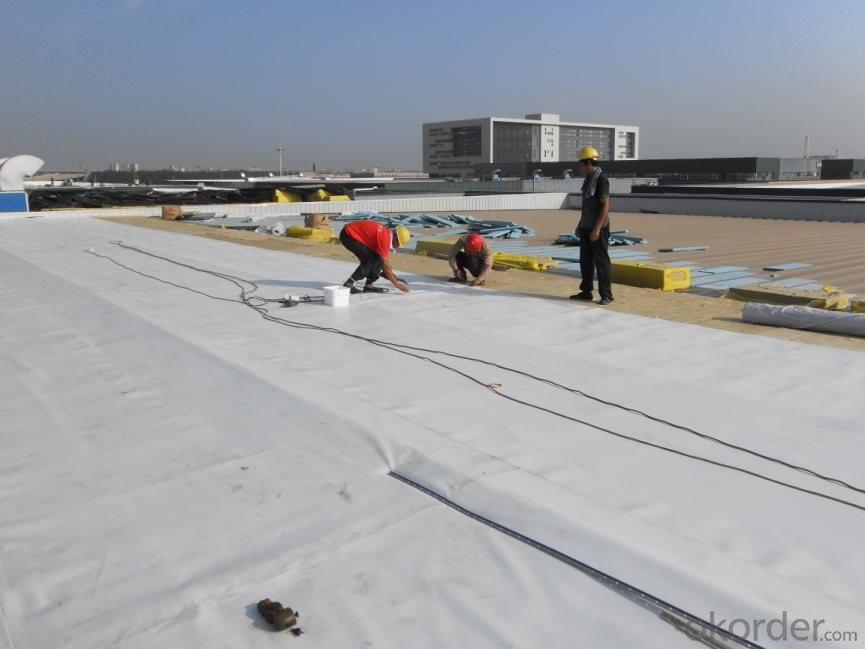
- Q: Can a waterproofing membrane be used on rubber surfaces?
- Yes, a waterproofing membrane can be used on rubber surfaces.
- Q: Polyurethane and SBS membrane waterproof
- Paste asphalt linoleum. The cold binder material prepared by diluting the bitumen with solvent is developing. Various solvent and water emulsion asphalt or asphalt rubber coatings for roof waterproofing, should be strictly selected anti-cracking, tensile, anti-aging performance and good weatherability thick coating varieties. In addition, all kinds of ointment for dealing with the general building of the joints waterproof.
- Q: Can a waterproofing membrane be used in areas with high foot traffic or heavy loads?
- Yes, a waterproofing membrane can be used in areas with high foot traffic or heavy loads. Waterproofing membranes are designed to provide durability and protect the underlying structures from water damage. They are often used in areas such as basements, balconies, and rooftops, which may experience heavy foot traffic or support heavy loads. However, it is important to choose a membrane specifically designed for high traffic or heavy load areas to ensure it can withstand the intended use.
- Q: Can a waterproofing membrane be used in conjunction with soundproofing materials?
- Yes, a waterproofing membrane can be used in conjunction with soundproofing materials. While the primary function of a waterproofing membrane is to prevent water infiltration, it can also contribute to sound insulation to some extent. However, for optimal soundproofing, it is recommended to use dedicated soundproofing materials such as acoustic insulation or soundproof panels in addition to the waterproofing membrane.
- Q: Can a waterproofing membrane be used on aerated concrete block surfaces?
- Yes, a waterproofing membrane can be used on aerated concrete block surfaces. Aerated concrete blocks are known for their porous nature, which can make them prone to water penetration. Applying a waterproofing membrane on the surface of the blocks can help prevent water from seeping through and causing damage. The membrane forms a barrier that keeps water out while still allowing the blocks to breathe and release any trapped moisture. This helps to maintain the integrity and longevity of the aerated concrete block structures. However, it is important to ensure that the waterproofing membrane is specifically designed for use on aerated concrete blocks, as different materials require different types of membrane for optimal performance.
- Q: Pvc waterproof membrane of the scope of application
- The scope of products: ????Polyvinyl chloride (PVC) waterproofing membrane due to the use of a unique product formula, the product life is far beyond the general waterproof material, the excellent performance of the membrane so that it is widely used in various fields of waterproof. ???1, for industrial and civil construction of the roof waterproof, including planting roof, flat roof, slope roof. ???2, the building underground waterproof: including reservoirs, dams, pools, drains and all parts of the basement waterproof. ???3, tunnels, grain depots, civil air defense projects, landfill, artificial lake waterproofing.
- Q: Can waterproofing membranes be used on concrete slabs?
- Concrete slabs can indeed utilize waterproofing membranes. In fact, it is a widely adopted technique to shield concrete slabs from water harm. The purpose of waterproofing membranes is to establish a barrier that halts water infiltration into the concrete surface. This becomes particularly crucial for regions susceptible to moisture, like basements, balconies, or swimming pools. Through the application of a waterproofing membrane, the concrete slab effectively safeguards itself against water infiltration, which might otherwise trigger cracks, erosion, or the growth of mold. Moreover, these membranes have the added benefit of bolstering the overall longevity and durability of the concrete slab.
- Q: Can a waterproofing membrane be used in hot climates?
- Yes, a waterproofing membrane can be used in hot climates. The membrane is designed to withstand various weather conditions, including high temperatures, and is effective in preventing water ingress regardless of the climate.
- Q: Can a waterproofing membrane be used on concrete slabs or foundations?
- Yes, a waterproofing membrane can be used on concrete slabs or foundations. Waterproofing membranes are commonly used in construction to prevent water penetration and protect structures from moisture damage. By applying a waterproofing membrane to a concrete slab or foundation, it creates a barrier that prevents water from seeping into the concrete and causing potential issues like cracking, water damage, or mold growth. This membrane is designed to withstand hydrostatic pressure, which is the force exerted by standing water, and it can effectively keep the area dry. It is important to select a suitable waterproofing membrane that is compatible with concrete and the specific conditions of the project. Proper installation and maintenance of the membrane are also crucial for long-term waterproofing effectiveness.
- Q: Can a waterproofing membrane be applied to metal surfaces?
- Metal surfaces can indeed benefit from the application of a waterproofing membrane. These versatile membranes are suitable for use on a range of materials, including metals. Their primary purpose is to safeguard metal surfaces against corrosion and water-related harm. By acting as a barrier, these membranes effectively ward off moisture infiltration, preventing rust and deterioration. Moreover, they can even enhance insulation and bolster the overall durability of the metal surface. To guarantee secure adhesion and enduring protection, it is crucial to select a waterproofing membrane explicitly designed for metal surfaces.
Send your message to us
PVC Waterproof Membrance for Roofing and Underground
- Loading Port:
- Tianjin
- Payment Terms:
- TT or LC
- Min Order Qty:
- 10000 m²
- Supply Capability:
- 15000000 m²/month
OKorder Service Pledge
OKorder Financial Service
Similar products
Hot products
Hot Searches
Related keywords
